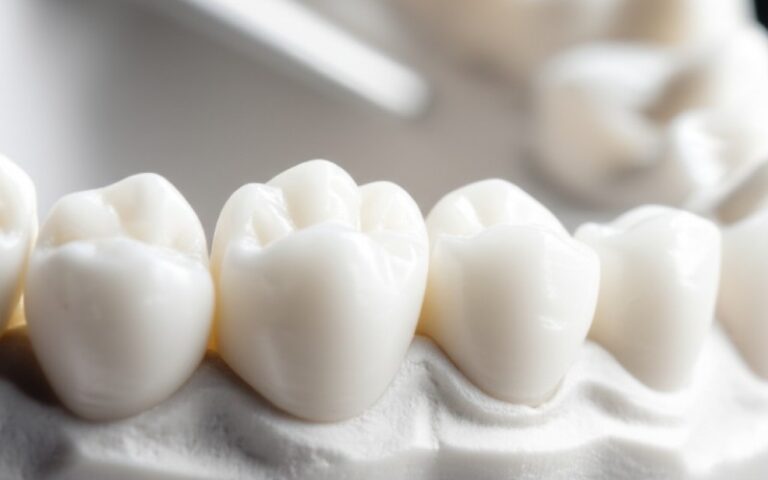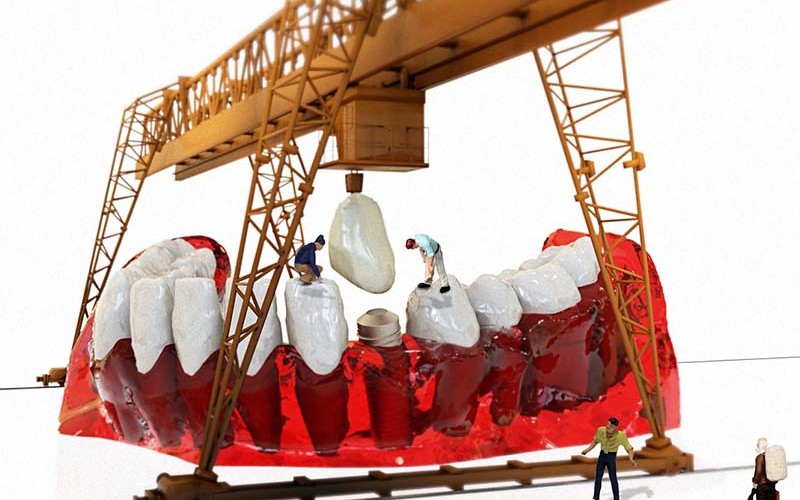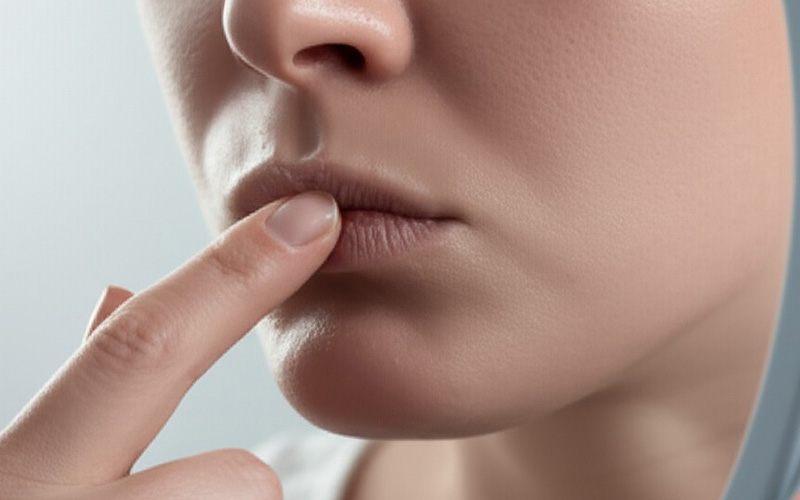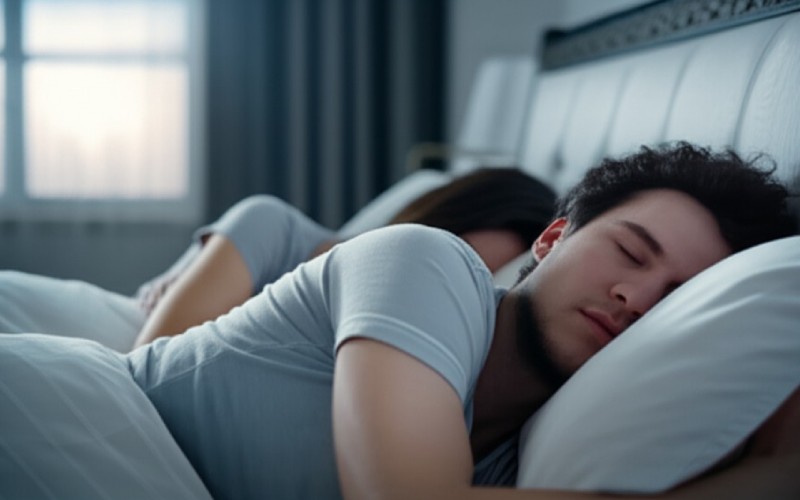
OTC Mundstykke: Den Simple Snorkeløsning til at Hjælpe Dig med at Sove Stille
This article is worth reading because I will explain everything about over-the-counter (OTC) snoring mouthguards in simple terms. We will look at what these mouthguards are, how they work, and how to pick the right one. If you or your partner are losing sleep because of snoring, this guide will give you the clear, simple answers you need.
Indholdsfortegnelse
Hvad er årsagen til snorken i første omgang?
Before we can fix a problem, we need to understand it. Snoring is pretty simple. When we sleep, the muscles in our throat relax. Sometimes, they relax too much. This can make your airway smaller. When you breathe, the air has to squeeze through this smaller space.
This squeezing causes the parts of your throat, like the soft palate, to flap around. Think of a flag waving in a strong wind. That flapping is what makes the noise we call snoring. The sound is a vibration of those soft tissues. For some people, the position of their tongue can also block their breathing and make snoring worse. It’s not your fault, it’s just how your body is built.
Understanding this means a lot to you.You are not sick. You just need a way to keep your airway open while you slept. That’s where an oral appliance, like a mouthguard, comes in. It’s a tool designed to fix this simple physical problem.
Hvordan fungerer snorkeskinner egentlig?
A snoring mouthguard is a small piece of plastic you wear in your mouth at night. Its main job is to change the position of your mouth parts to help your breathing. It keeps your airway open so the air can move freely. No more squeezing means no more vibration. And no more vibration means no more snoring.
Most mouthguards work in one of two ways. One type gently moves your lower jaw forward. By moving the jaw, it also pulls the tongue and other soft tissues forward. This simple movement is often all it takes to open up the airway enough to stop the snoring. It creates a clear path for air.
The other type of mouthguard works directly on the tongue. It holds your tongue in a forward position so it cannot fall back and block your throat. Both of these methods are designed to improve your sleep quality and, just as important, the sleep quality of your partner.
Hvad er en Mandibulær Fremføringsanordning (MAD)?
This sounds very technical, but it’s the most common type of snoring mouthguard. “Mandibular advancement device” is just a fancy name for a device that moves your jaw forward. “Mandibular” refers to your lower jaw. “Advancement” means to move forward. So, it’s a jaw-moving-forward device. Most of the OTC options are MADs.
This oral appliance looks a lot like a sports mouthguard. You fit it over your teeth, and it holds your lower jaw in a slightly forward position all night. This slight change is usually enough to create the space needed in your airway to stop snoring. It keeps the base of your tongue from collapsing into your throat.
Many of these devices are adjustable. This is a great feature. It means you can change how far forward it pushes your jaw. You can start with a small adjustment and slowly increase it until your snoring stops. Finding that sweet spot is key to both comfort and success.
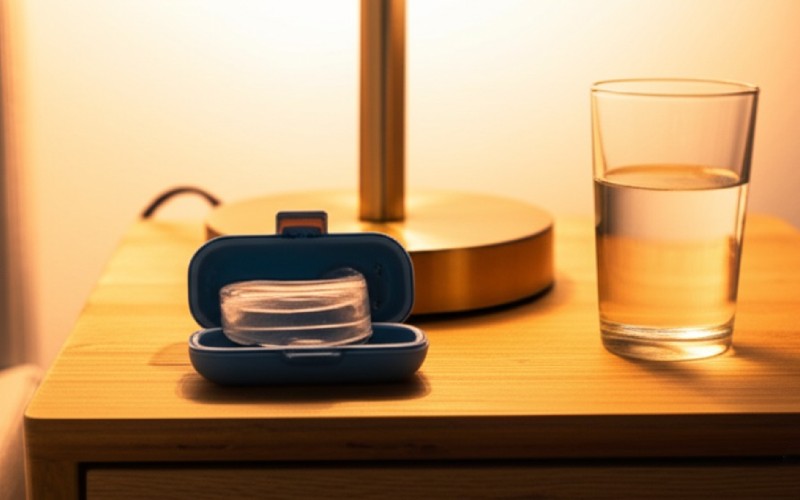
Is a Tongue Retaining Device (TRD) a Better Choice?
Some people prefer a tongue retaining device, or TRD. It works a bit differently. Instead of moving your jaw, a TRD focuses only on your tongue. This device looks like a small pacifier with a hole where you put the tip of your tongue.
It uses gentle suction to hold your tongue forward all night. By doing this, it prevents your tongue from relaxing and falling to the back of your throat. This is a common cause of airway blockage and vibration. A TRD can be a great option for people who can’t use a MAD. For example, people with dentures or certain jaw problems may find a TRD more comfortable.
The choice between a MAD and a TRD often comes down to personal comfort. Some people don’t like the feeling of having their jaw held forward. Others don’t like the suction on their tongue. There is no single “best” choice for everyone. You may need to see which style feels better for you.
Can I Get a Good Custom-Fit with a “Boil-and-Bite” Mouthpiece?
How could something from a box fit my mouth? The answer for many devices is a “boil-and-bite” method. This is a wonderful, simple technology. These mouthguards are made from a special thermoplastic material.
Here’s how it works. You put the mouthguard in hot water for a minute or so. This makes the plastic soft and easy to shape. Then, you take it out, let it cool for a second so it doesn’t burn you, and bite down on it. You press it against your teeth and gums to create a perfect mold of your mouth. After it cools, the plastic hardens, and you have a custom-fit mouthpiece.
This process is simple and you can do it at home in minutes. A good fit is very important for both comfort and how well the device works. If it doesn’t fit well, it might not hold your jaw in the right place or it could fall out during the night. The boil-and-bite feature makes an affordable OTC device feel like it was made just for you.
Are There Side Effects I Should Know About?
Yes, and it’s important to be honest about them. The most common side effect is jaw soreness. This makes sense because the device is holding your jaw in a new position.
Another common side effect is extra saliva, or drooling. Your mouth thinks there is food in it, so it produces more saliva. This also usually gets better over time. Some people might experience dry mouth or slight changes in their bite. It’s important to pay attention to these things.
A more serious concern is TMJ (temporomandibular joint) pain. This is pain in the joint that connects your jaw to your skull. If you have jaw pain that is sharp or does not go away, you should stop using the device and seek medical advice. Most side effects are temporary, but you should always listen to your body.
How Do I Choose the Right OTC Mouthpiece for My Needs?
Choosing the right device can feel overwhelming, but I found a few things that really help. First, look for a device that is FDA-cleared. This means the U.S. Food and Drug Administration has reviewed it and found it to be safe and effective for its intended use.
Second, think about adjustability. As I mentioned, an adjustable MAD is a great feature. It allows you to control the level of advancement. This helps you find the right setting to stop your snoring without causing too much discomfort. It puts you in control of your own treatment.
Finally, read reviews from other users. See what people say about comfort, ease of use, and effectiveness. A device might work well, but if it is too uncomfortable to wear, you won’t use it. Finding the right balance between comfort and function is the key to improving your sleep quality and finally getting a quiet night.
What Is the Difference Between Snoring and Sleep Apnea?
This is the most important question in this whole article. Simple snoring is a noise problem. Obstructive sleep apnea is a medical condition. With sleep apnea, your airway doesn’t just get narrow—it closes completely. You stop breathing for short periods, over and over, all night long. This can be very dangerous.
If you are a very loud snorer, and you also choke or gasp for air in your sleep, you might have sleep apnea. Other signs are waking up with a headache or feeling extremely tired during the day, even after a full night’s sleep. An OTC mouthguard is for simple snoring, not sleep apnea. Using one when you have sleep apnea can be risky because it might hide the problem without fully treating the breathing pauses.
If you think you might have sleep apnea, you must see a doctor. A doctor might recommend a sleep study to see what’s happening when you sleep. The most common treatment for sleep apnea is a CPAP machine, which provides a steady flow of air to keep your airway open. Do not try to treat a medical condition on your own.
How Do I Properly Care For and Clean My Mouthpiece?
Taking care of your mouthguard is very important for your health. A dirty oral appliance can grow bacteria, which you don’t want in your mouth. Good hygiene is simple. Clean your mouthpiece every morning as soon as you take it out.
You should clean it with a soft toothbrush and cool water. You can use a mild soap or a special cleaner made for dentures or mouthguards. Don’t use hot water or harsh toothpaste, as these can damage the thermoplastic material. After cleaning, rinse it well and let it air dry completely before storing it in its case.
This daily cleaning routine only takes a minute. It keeps your device fresh and safe to use every night. Good hygiene will also make your device last longer. It’s a small habit that makes a big difference for your oral health.
When Should I Talk to a Dentist or Doctor?
While OTC mouthguards are a great starting point, they are not a substitute for professional care. It’s always a good idea to talk to a professional. You should definitely see a doctor before you start if you suspect you have sleep apnea. Your health is too important to guess.
A dentist consultation is also a very good idea. A dentist can check the health of your teeth and gums to make sure a mouthguard is safe for you. They can also check for any signs of TMJ issues. If an OTC device doesn’t work or is uncomfortable, a dentist can make a custom, professional-grade oral appliance that is much more precise and comfortable.
Think of an OTC device as a first step. It’s an affordable way to see if this type of solution works for you. But for long-term use, or if you have any dental issues or pain, getting medical advice from a doctor or dentist is the smartest and safest thing to do. They can guide you to the best solution for your health.

Vigtige ting at huske
- Snoring is caused by a narrow airway that makes your throat tissues vibrate.
- Mouthguards work by moving your jaw or tongue forward to keep your airway open.
- “Boil-and-bite” mouthguards allow you to get a custom-like fit at home.
- Mild jaw soreness is a common side effect at first, but severe pain is not normal.
- If you gasp for air or are extremely tired, see a doctor to check for sleep apnea.
- Always look for an FDA-cleared device for safety.
- Clean your mouthpiece every day with cool water and a soft brush.
- Talking to a dentist or doctor is always the safest way to address snoring.



